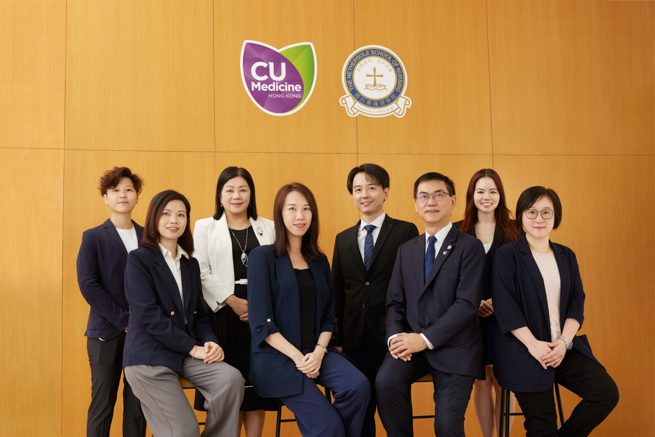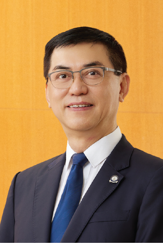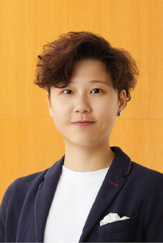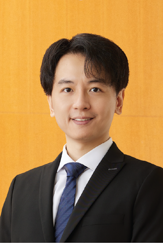Ageing, Behavioural and Mental Wellness

Mission
The mission of the Ageing, Behavioural and Mental Wellness Group is to conduct high-quality research on mental and behavioural health promotion and intervention strategies, aimed at facilitating the adoption of healthy lifestyles to maintain wellness across the lifespan.
Its main research priorities include:
- Improving mental health and well-being across lifespan, particularly in adults and older people;
- Development and evaluation of innovative psychosocial and family interventions for people with chronic physical/mental illnesses; and
- Community-based rehabilitation for disabling physical and mental illnesses.
Key Researchers

Assistant Professor
Prof. Connie Chong, an expert in Contextual Behavioural Science (CBS) and Acceptance and Commitment Therapy (ACT), specialises in mental health support for family caregivers of children with special needs or chronic conditions. Expanding her work into machine learning and natural language processing, she has developed a specialised AI system by fine-tuning a foundational language model on an expert-annotated dataset of ACT therapeutic dialogues. This AI powers the Pai.ACT® platform, which analyses user interactions to generate ACT-specific diagnostic reports and deliver tailored ACT-based interventions. Preliminary studies confirm the system’s high accuracy in identifying therapeutic needs and show that users experience significant improvements in psychological flexibility, alongside notable reductions in parenting stress, depression, and anxiety. The AI system and Pai.ACT® have received multiple patents and international technology awards, underscoring their innovation and impact. As the founder and CEO of ACTuWISE Limited, Professor Chong advances caregiver mental health through pioneering solutions that integrate AI and psychology.

Director and Professor
Prof. Chien Wai Tong has established and tested the effects of individual- and group-based psychoeducation, motivational interviewing, mindfulness- and acceptance-based, mutual aid, and other psychosocial intervention programmes for community-residing people with mental health problems, and their family members in Chinese communities. Recently, Prof. Chien’s controlled trials have evidenced very noticeable benefits of a mindfulness-and acceptance-based self-illness-management programme for individuals with psychotic disorders, and of a problem-solving-based bibliotherapy programme for people with serious mental illness and their family caregivers. He has also engaged in international collaborations on family bibliotherapy and medication adherence therapy in psychotic disorders and mental health literacy, working with psychiatrists, clinicians, medical and nursing researchers, social workers, and psychologists in Hong Kong, mainland China, Australia, South Korea, Thailand, the United Kingdom, and the United States.

Professor
Prof. Helen Chan is a pioneer in promoting end-of-life care and advance care planning in Hong Kong. Her studies have identified and evaluated innovative yet culturally sensitive ways to improve end-of-life care and communication in people with advanced illness and frail older people and their family carers. She has also explored means to improve organisational culture for supporting advance care planning in the community, hospital and long-term care settings.

Professor (Practice in Child Health)
Prof. Regina Lee’s research focuses on the mental health needs of children and youth, especially those with special health needs. She has been working with local and international experts to address the health needs of children and youth with developmental disabilities. Her research interests lie in implementing SWELE school playground programme and laughter yoga programme, along with mindfulness-based interventions on children’s play to promote physical and psychosocial well-being during times of transition in early childhood. She also evaluates the effectiveness of a cognitive mindfulness programme on building resilience in youth with smartphone addiction symptoms and behaviours.

Associate Professor
Prof. Cheng Ho Yu focuses on the care of stroke survivors’ family health. Her randomised controlled trial of the effectiveness of a strength-oriented programme for these family caregivers demonstrated benefits to their psychological well-being. Her systematic review of psychosocial intervention for these caregivers has provided evidence for the development of local and international practice protocols.

Assistant Professor
Prof. Laurie Ho’s research focuses on eliminating addictive behaviours, such as alcohol drinking and tobacco use, as well as preventing non-communicable diseases. She received training in dialectical behaviour therapy at the Centre for Addiction and Mental Health, University of Toronto. Her recent study investigates the effectiveness of Internet-based dialectical behaviour therapy-informed skills training (DBT-ST) in treating alcohol problems alongside underlying co-occurring psychological distress, which has laid the foundation for the application of DBT-ST in curbing alcohol use.

Research Assistant Professor
Prof. Stanley Lam’s primary research interests lie in trauma-related mental health, particularly post-traumatic stress disorder (PTSD) and dissociative symptoms. He has led multiple studies and trials to explore the effects of various interventions on individuals with PTSD and coexisting health issues. He has published extensively on these topics, contributing to the growing understanding of trauma’s impact on mental health in both local and international contexts. His ultimate goal is to enhance the mental well-being of individuals in the community, particularly those who have survived trauma-related conditions.

Research Assistant Professor
Prof. Sarah Xiao’s research focuses on improving the quality of care and health outcomes of vulnerable and disadvantaged communities. Her previous work includes developing a theoretical framework to understand the psychosocial factors influencing weight management among persons prescribed atypical antipsychotic medications. She has also completed a research fellowship with the Museum of Health Care at Kingston, Canada to examine the historical evolution of electroconvulsive therapy. Prof. Xiao’s most recent projects involve developing an instrument to measure and evaluate the quality of discharge planning processes in mental health care, as well as patient-reported experience measures (PREMs) to evaluate the impact of integrated care programmes for people experiencing homelessness and individuals with depression and anxiety.
Selected Research Projects
| Project Title | Funding Source | Principal Investigator | Project Period |
|---|---|---|---|
| A realist evaluation of advance care planning in Chinese communities | Humanities and Social Sciences Prestigious Fellowship Scheme | CHAN Yue Lai, Helen | 2025 |
| FoStering psychosOcial weLl-being of family caregivers of stroke surVivors using Emotion-centred, problem-solving approach (SoLVE): A randomised controlled trial | General Research Fund (GRF) | CHENG Ho Yu | 2022 – 2024 |
| Effectiveness of a peer-facilitated, recovery-focused self-illness-management programme for adults with first-episode psychosis: A randomised controlled trial with an 18-month follow-up | General Research Fund (GRF) | CHIEN Wai Tong | 2023 – 2025 |
| Pai.ACT®: A Deep-Learning Mental Health Advisory System Using Acceptance and Commitment Therapy for Parents of Children with Special Needs | Innovation and Technology for Better Living, CUHK IdeaBooster Fund, General Research Fund, Research Grant Council | CHONG Yuen Yu, Connie | 2022 – 2027 |
| Effect of an internet-based dialectical behaviour therapy-informed skills training for reducing alcohol consumption and improving psychological distress of adult drinkers: A pilot randomised controlled trial | Health and Medical Research Fund (HMRF) Research Fellowship Scheme | HO Long Kwan, Laurie | 2022 – 2024 |
| An integrated online programme using psychoeducation and expressive writing for people with probable post-traumatic stress disorder and coexisting dissociative symptoms: A pilot randomised controlled trial | Health and Medical Research Fund (HMRF) | LAM Kam Ki, Stanley | 2024 – 2026 |
| SWELE programme: An unstructured outdoor play with mindfulness-based interventions to promote mental health in SEN children and adolescents | Health Bureau - Advisory Committee on Mental Health | LEE Lai Tong, Regina | 2023 – 2024 |
International Research Collaborations
| International collaboration on family bibliotherapy and (medication) adherence therapy in schizophrenia and psychotic disorders with psychiatrists, clinicians, medical and nursing researchers, social workers, and psychologists in Australia, Hong Kong, Thailand, United Kingdom, and United States |
| A cross-regional collaboration with researchers and clinicians in Japan, Korea, Taiwan, and Singapore to explore and delineate the concepts of advance care planning |
| An international study (COVID-IMPACT) in collaboration with university institutions from 21 countries and/or regions to examine the psychological impact of COVID-19 among individuals worldwide |

